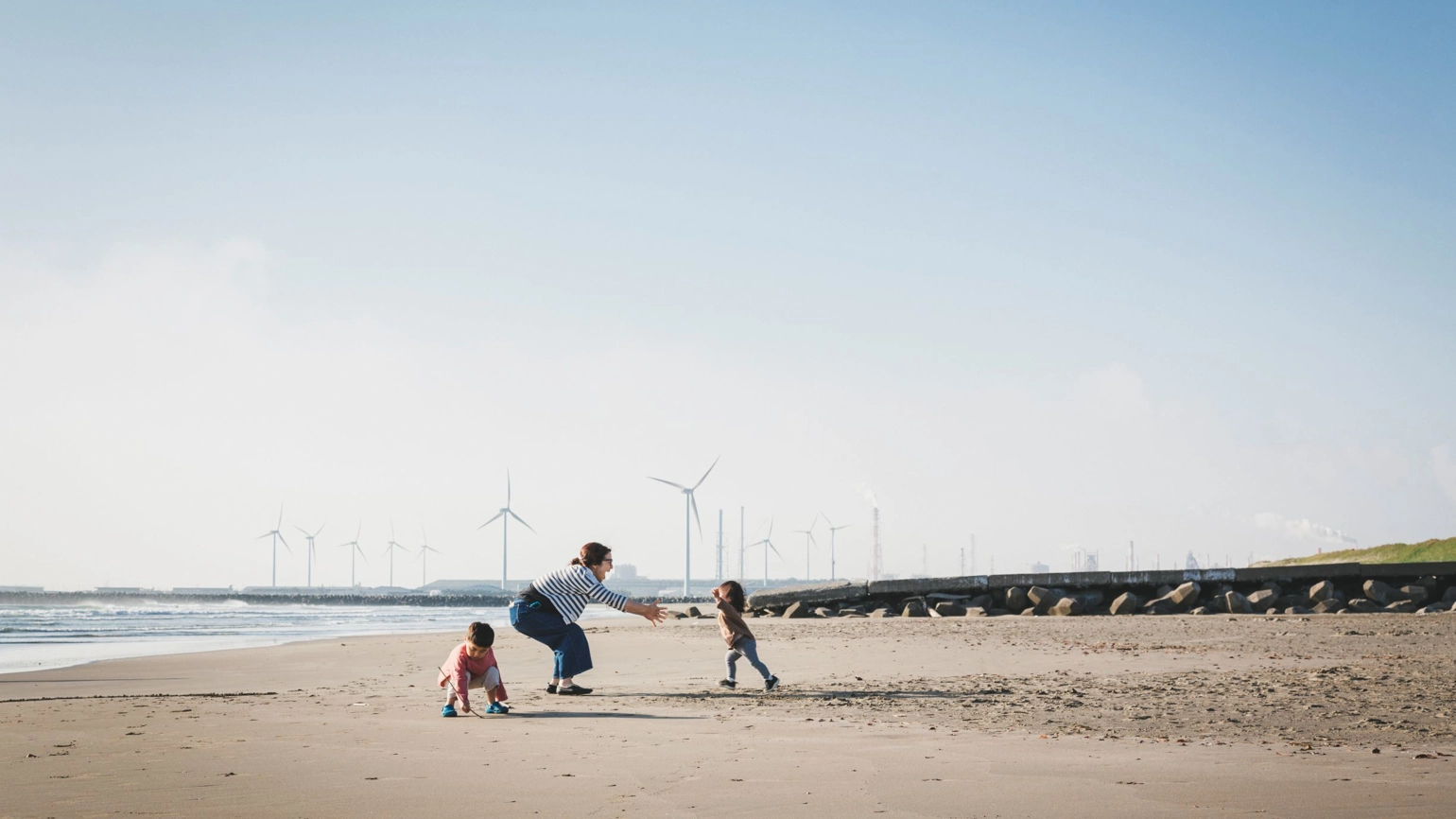All media enquires relating to L&G Group.
Household inequalities threaten UK target of Net Zero emissions by 2050
Latest research, published as part of the latest edition of the Legal and General Rebuilding Britain Index (RBI) shows that there is a real risk of less affluent communities being left behind in the transition to clean and green technology at a household level.
20 Oct 2021
Full press release (green)Full press release (housing)Full report

- Latest research from Legal and General shows that households with annual earnings under £20,000 are far slower to adopt green technologies when compared to more affluent households. The UK runs the risk of derailing its Net Zero plans by limiting climate transition only to the better off.
- Despite a strong willingness among all households to adopt green technologies, affordability is a significant stumbling block. The average UK household has a funding gap of over £4,000 on the installation of solar panels and a nearly £15,000 gap on the installation of a ground source heat pump[1]
- The Boiler Upgrade Scheme announced this week, which provides households up to £5,000 to install an air source heat pump, still leaves a significant shortfall on households to cover the cost. The research finds that even higher income households are willing to contribute relatively little towards renewable energy home modifications.
- Filling this funding gap requires a new green partnership approach, which shares the costs of transition between households, local authorities and central government. It also requires bigger thinking that tackles the challenge at a street or community level as opposed to relying on individual households.
To mark the COP26 milestone the latest edition of the RBI provides a special in-depth look not just at the extent to which the UK is building back better, but also how it can look to build back greener. The findings show how higher income households (£40,000+ per annum) are far more likely to have a renewable energy source installed in their home (20%), drive an electric vehicle (18%) and have a smart meter in their home (53%) compared to households with an annual income of under £20,000 (8%, 4% and 44% respectively).
The research shows that UK consumers are particularly open to making green modifications to their home – with 52% very or fairly willing to install a solar panel and 54% willing to install a ground source heat pump. However, the financial realities of such modifications are a significant barrier to adoption – with consumers only willing or able to contribute around 13% of the costs associated with installing a solar panel and 10% of the costs of installing a ground source heat pump.
The highest income households (£80,000+ per annum) are willing to contribute 16% of the overall cost towards a ground source heat pump, falling to only 6% among those under £20,000. With the government targeting an additional 600,000 heat pumps every year by 2028 it is clear that onus will be on government to facilitate these installations. The findings imply that the BUS – offering funding of up to 50% towards the costs of an air source heat pump (assuming average costs of £10,000) – will not go far enough in encouraging take up, particularly among lower income households.
For the latest report, L&G developed a special Greener Communities Index, based on outcomes measures (including CO2 per capita and renewable energy generation per household), local sentiment (air quality, availability of green public spaces and availability of EV charging points) and consumer behaviours (home energy efficiency, smart meter ownership and renewable energy installation in the home).
The index highlights that while less densely populated areas such as the South-West of England and Wales may be predisposed to perform better on measures such as air quality and access to public green space, they are at greater risk of being left behind in terms of investment into EV charging points and installation of renewable energy sources.
The top 10 local authorities identified by the Greener Communities Index are Stirling, Allerdale, Northumberland, Breckland, Barking & Dagenham, East Suffolk, Mid Suffolk, Great Yarmouth, Dover and Bedford. These local authorities span urban, rural and coastal areas, indicating that geography alone will not determine how feasible the green transition is for different areas across the UK.
Simon Lomax, CEO at Kensa Group: “This week’s announcement on the Boiler Upgrade Scheme does not go far enough. It lacks scale and is just a small step towards the Prime Ministers’ 2028 target of 600,000 installations. The £450m fund can support a maximum of 90,000 installs (30,000 per year) which is less than 0.4% of the UK’s homes.Right now, the UK has the second lowest penetration of heat pumps across Europe so much more needs to be done to speed up deployment. There should be particular focus on more efficient variants, like ground source, which deliver the very best outcomes for the householder (running costs), the environment (carbon emissions), and put less pressure on the electricity grid.
There is a wider opportunity for networked heat pumps – whereby whole streets and communities can connect to a local heat source that uses the natural heat in the ground or possibly waste heat. There are whole tower blocks in London that have been retrofitted with heat pumps for each flat connected to a shared network using this approach.
A meaningful deployment programme would need £1bn per annum but designed appropriately would leverage in billions of pounds of private finance. It would also save a greater amount because more efficient ground source heat pumps would require less generating capacity and fewer network upgrades so the overall costs to the electricity system would be lower.”
Nigel Wilson, CEO at Legal & General: “Building back better and levelling up require local investment in green infrastructure. We cannot build healthy and prosperous communities without building and retrofitting infrastructure which reduces emissions, improves air quality and access to green jobs.Currently, the UK runs the risk of creating two visions of Britain: one where more affluent communities benefit from the green and clean technologies of the 21st century, and another where less affluent communities do not. Climate transition cannot be restricted to the better off. If the UK is to successfully hit its carbon neutral target by 2050, this transition needs to take place in a socially inclusive manner.
To ensure this outcome, central government has a major role to play in facilitating local government and households to adapt local infrastructure to address sustainability and climate concerns.”
[1] Assuming a cost of £4,800 for a domestic solar panel setup and £16,500 cost for a ground source heat pump
Further information

Lauren Kemp
Head of Group Corporate Media & Issues
Group Communications



